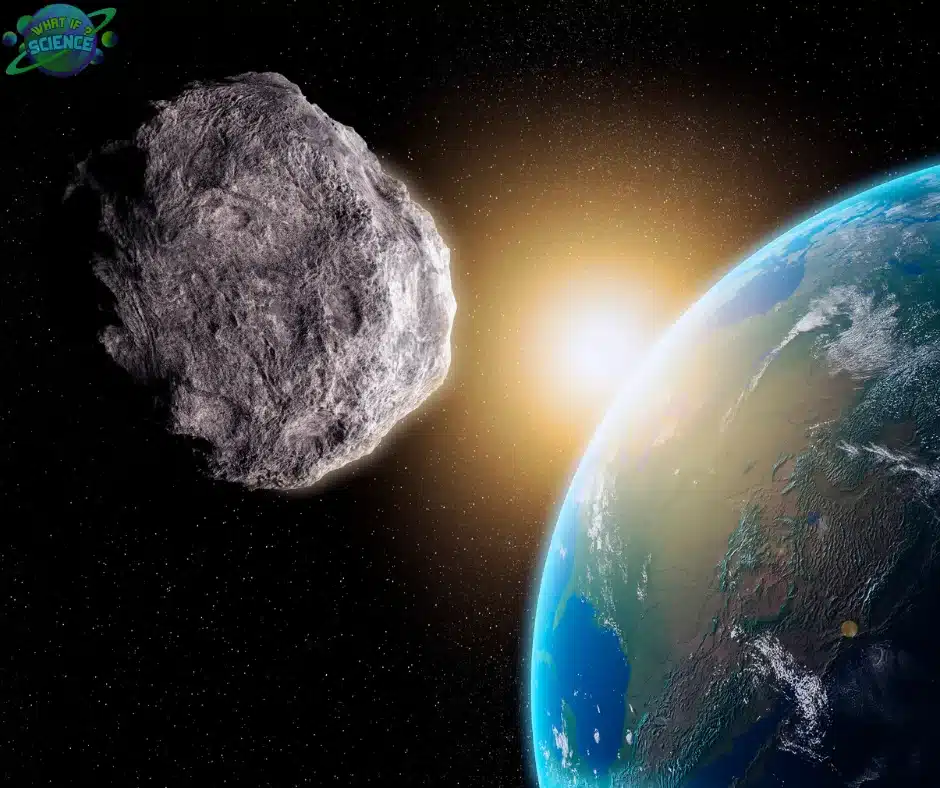A Giant Visitor from Space
Imagine looking up at the sky and seeing a massive space rock, as tall as Mount Everest, skimming right above Earth’s atmosphere! That’s about 8.8 kilometers high—the tallest mountain on our planet. Now imagine something that huge flying so close to us that it nearly touches the edge of the atmosphere, but doesn’t crash into Earth. Sounds like the plot of an exciting sci-fi movie, right? Let’s explore what would happen and how humans might react if such a jaw-dropping event took place.
What Is an Asteroid Anyway?
Asteroids are giant rocks that float around in space. They are leftovers from when the solar system was formed, more than 4.5 billion years ago.
- Most asteroids live in the asteroid belt between Mars and Jupiter.
- They come in all sizes: some are as small as pebbles, others as massive as mountains!
- Scientists study them because they can tell us secrets about the early solar system.
Now imagine one the size of Mount Everest heading toward Earth—not to hit, but to skim right above us. That would be one of the most unforgettable moments in history.
How Close Is “Just Above the Atmosphere”?
Earth’s atmosphere starts about 100 kilometers (62 miles) above the surface. If the asteroid skimmed just above that:
- It would be dangerously close, like a giant cosmic airplane flying overhead.
- People on the ground could possibly see it with their own eyes, glowing as it brushed against the thin upper layers of air.
- It would create a spectacular streak in the sky, brighter than any comet or meteor ever seen.

What Would Happen in the Sky?
An asteroid that big moving so close to Earth would cause dramatic effects:
- Friction with the atmosphere: Even if it didn’t hit, the thin air at the edge of Earth’s atmosphere would make it glow like a fiery ball.
- Shockwaves in the air: The force of its speed could create booming sounds, like thousands of sonic booms at once.
- Meteor showers: Small pieces breaking off might burn up as shooting stars across the sky.
It would be like the most amazing (and terrifying) fireworks show in human history!
How Would Humans React?
People everywhere would react with a mix of fear, excitement, and wonder.
- Scientists and space agencies like NASA would be on high alert, tracking its path to make sure it wouldn’t crash.
- News channels would broadcast updates 24/7, with everyone glued to their TVs and phones.
- Kids and families might go outside to watch the sky, both scared and amazed at the once-in-a-lifetime event.
- Leaders and governments might prepare emergency plans in case the asteroid changed direction and hit Earth.
It would be a moment of global unity—where the whole world watches the same cosmic visitor.
Could It Crash Into Earth?
The big question on everyone’s mind would be: “Is it going to hit us?”
- If it just skimmed the atmosphere, it wouldn’t crash.
- But if Earth’s gravity pulled it in just slightly, the impact would be disastrous.
- An asteroid that size could create a crater bigger than a city and cause global climate changes.
That’s why scientists are working on ways to deflect asteroids if they ever come too close.
How Would Animals React?
Animals are often more sensitive to natural changes than humans. If a giant asteroid flew past:
- Dogs might bark or whine because of the strange booming sounds.
- Birds could panic and fly in unusual directions.
- Nocturnal animals might be confused by the glowing sky.
It would be nature’s way of showing how even animals sense cosmic changes.
What Could Happen to Satellites?
Satellites orbit Earth in space, and many of them are within a few hundred kilometers above us. If the asteroid skimmed the atmosphere:
- It might pass dangerously close to satellites used for TV, internet, and weather tracking.
- A collision could knock out communication systems for hours or even days.
- Space agencies would probably move satellites out of the way if they had enough warning.
So, humans on Earth might experience temporary blackouts in internet and GPS signals.
Would People Celebrate or Panic?
Humans often react in surprising ways:
- Some might panic, thinking it’s the end of the world.
- Others might celebrate and treat it like the most spectacular space show ever.
- Scientists would use it as a chance to study asteroids up close.
It would likely be remembered forever as the day the sky lit up with a mountain-sized asteroid.
Lessons Humans Would Learn
If something like this ever happened, humans would learn important lessons:
- How important it is to monitor space for potential asteroid threats.
- How small Earth feels compared to the vast universe.
- That people from all countries can unite when facing something larger than life.
It would remind us that while Earth is our safe home, space always holds surprises.
Conclusion: The Day Earth Almost Met a Giant Rock
An asteroid the size of Mount Everest skimming Earth’s atmosphere would be one of the most incredible and nerve-wracking events in history. While humans would be frightened, they would also be filled with wonder at the sight of such a cosmic giant passing by.
The event would remind us of how precious our planet is and why protecting it from space dangers is so important. And when the asteroid finally drifted away into the darkness of space, humans everywhere would breathe a sigh of relief, knowing we just had the closest encounter with a true space mountain.